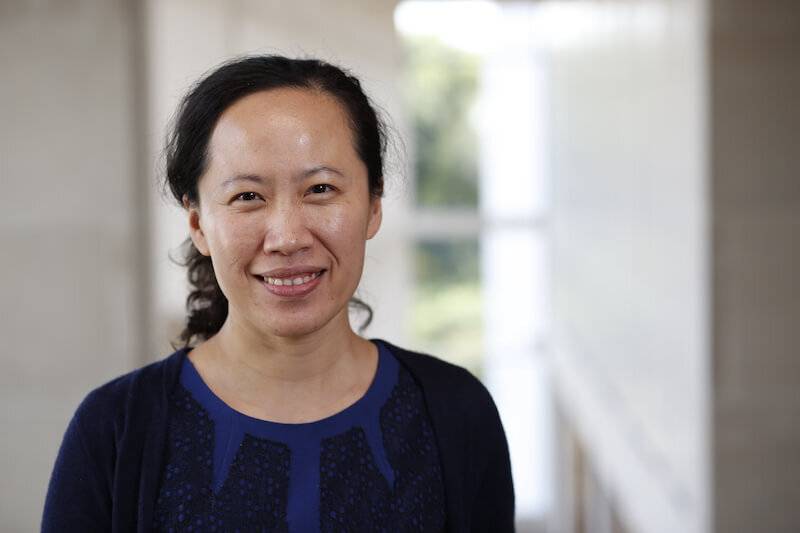Crowdsourcing Contests: Understanding What Brings High Rewards, Low Risk
Rachel Cramer, Iowa State University News Service
Posted Sep 8, 2023

Rachel Cramer, Iowa State University News Service
Posted Sep 8, 2023

During Frito-Lay’s first “Crash the Super Bowl” contest in 2006, thousands of participants submitted 30-second videos promoting Doritos. Entries were winnowed down to five finalists, and a public vote selected the winning commercial, which aired during the most watched American television broadcast of the year.
The ad boosted Doritos sales and pulled in awards, sparking other big brands, like Nestlé, BMW and Fisher-Price, to launch their own crowdsourcing contests.
“Crowdsourcing has become more prevalent over the last decade. It can generate innovative ideas and solutions and engage consumers. The contest itself serves as a promotional event that draws a lot of attention to the product or brand,” says Hui (Sophia) Feng, associate professor of marketing at Iowa State University.
Feng studies how certain marketing strategies affect a company’s financial outcomes, including stock prices. In a newly published study, Feng and her co-authors show that crowdsourcing contests are associated with high returns — but also high risks. The team suggests ways companies can strike the right balance and put investors at ease.
Investors in big public firms are forward looking. So, the stock price will reflect how investors view a crowdsourcing contest regarding future cash flow,” says Feng.
To collect their data, researchers analyzed more than 500 “marketing ideation crowdsourcing contests” held from 2006 to 2019. They focused specifically on contests that created either promotional content or product development, such as Ben & Jerry’s Do Us a Flavor and Google’s new power inverter design challenge. The researchers also looked at whether contests were open to the general public or professionals, judged by an expert panel or public vote and had a clearly stated purpose and narrow scope.
Feng and her co-authors then collected each firm’s accounting and stock-returns data two days before and after the official announcement of the crowdsourcing contest. If other significant events, like large layoffs or mergers, occurred during this window, the researchers removed the contest from their sample. They didn’t want other factors that could influence stock prices to muddy their dataset.
The researchers found crowdsourcing contests that limit the entries to professional creators but open the judging to crowd voting have the highest returns and lowest volatility in stock prices.
“When a contest is open everyone to participate, a lot of submissions are going to be low quality, and bad or problematic entries can sometimes go viral because people think they’re funny and vote for them to win. The firm can lose control of the content,” explains Feng.
Restricting the judging to a panel of experts may help reign it in, but it also reduces transparency. The researchers say letting a crowd vote for professionally-created content strikes the right balance.
“Focusing contests on professionals allows for high-quality ideas to emerge that are more consistent with the firm’s objectives. In addition, consumers enjoy voting on contest submissions,” Feng adds.
The researchers found the most significant stock return increase occurs on the event announcement day.
Crowdsourcing contests experience higher returns if the purpose is clearly defined and the scope is narrow and specific, rather than broad and general. For example, asking for a 30-second video that will build awareness and excitement around a specific product ensures more focused entries in the submission pool. Asking for a video showing how brand can improve education, health care, economic development and the environment does not, says Feng.
The researchers say new product development crowdsourcing contests also carry higher risks than promotional contests.
“In general, new product development is difficult. There’s a lot of uncertainty about whether it will be commercially successful, if there will be enough demand for it, and it could signal a new direction for the company. Promotions generally take less time and are a less risky investment,” says Feng.
Another finding is that large, well-known brands benefit more from crowdsourcing than small or niche brands because they can engage a wider audience and receive more ideas and content.
Feng emphasizes crowdsourcing is a complement to a firm’s own marketing capability, not a substitute. Having a strong marketing team is important for investors to be confident about contests, which need to be designed, promoted and managed.
The researchers’ latest study shows the effects of crowdsourcing, but Feng says the stock price reaction is still partially “a black box.” She and her co-authors are interested in better understanding why investors react a certain way. Future research could include additional interviews and surveys with investors, along with more experiments and analysis of contest web traffic.
Feng co-authored the paper with Zixia Cao, University of Colorado Denver, and Mike Wiles, Arizona State University.
